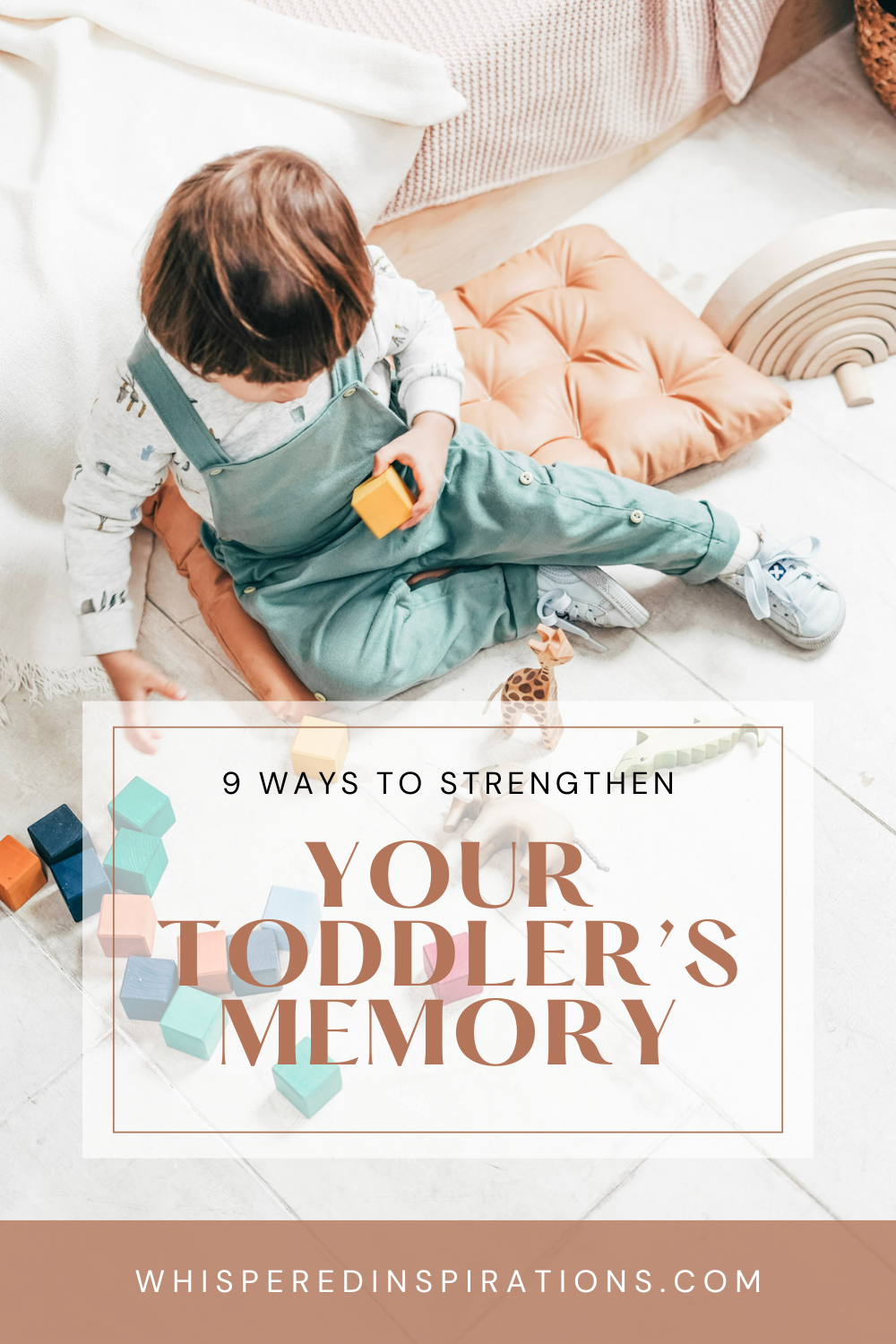9 Ways to Strengthen Your Toddler’s Memory and Info Retention Skills

Strengthen Your Toddler’s Memory and Info Retention Skills
Strong memory and information retention skills are quite important for toddlers as they embark on their ongoing journey of learning and discovery.
And as a parent, you play a key role in nurturing these cognitive abilities and laying the foundation for your child’s future academic success and overall development.
These skills will be taught and strengthened in myriad ways when your toddler is at school, for example through a Kinderland education.
You can learn more about Kinderland SG and check out avenues like Kinderland’s YouTube channel to see how the school utilizes music and other creative methodologies to enhance memory and information retention in young pupils.
All the same, it would still be good to sharpen these skills at home. Here are some of the practical ways you can do so.
At the same time, stoke a love for learning in your toddler that will have them eager to remember things about the world around them.
Here are some tips to strengthen your toddler’s memory.
1. Practice Repetition
Repetition is a fundamental technique for enhancing memory and information retention in young learners. Repeating important information or concepts regularly helps reinforce neural connections in a child’s brain and aids in long-term memory formation.
What do you reiterate or reaffirm during daily interactions with a toddler?
Well, simple information such as the names of family members, colors, shapes, or numbers is a good start. You can also repeat the different steps in a task, such as the steps for making a fruit yogurt swirl recipe.
Incorporating repetition into bedtime routines by reciting familiar stories or songs can also further solidify memory retention.
2. Use Visual Aids
Many children find visual aids to be powerful tools for enhancing their memory and information retention abilities. It helps to present information in a visual format.
Like through picture books, flashcards, or educational videos, to help your toddler make connections between visual stimuli and corresponding concepts.
Flashcards with images of animals and their names are common tools that can help toddlers associate the visual representation with the spoken word.
The use of such aids can also facilitate memory formation. Make sure to select age-appropriate materials that capture your child’s interest and curiosity.
Choose flashcards, posters, or books that encourage their active participation.
3. Establish Routine and Consistency
Toddlers greatly benefit from consistent daily routines. They offer them a sense of security and stability. Children who are used to following a routine can anticipate what comes next and mentally prepare for upcoming activities.
This is an important aspect of everyday learning.
Incorporate regular routines for activities such as mealtime, playtime, and bedtime to create a structured environment conducive to memory formation.
Remember, too, that consistency is key to reinforcing neural pathways associated with routine tasks.
So that you can stay on schedule, use calendars or timers. These can also help your toddler understand and anticipate their daily routines.
4. Play Interactive Memory Games
Fun activities such as memory matching games, puzzles, or simple board games provide opportunities for bonding and encourage active participation and mental stimulation.
Both of which strengthen information retention and cognitive skills. Through gameplay, toddlers can exercise their developing memory and problem-solving skills as they recall patterns, sequences, and associations.
To maximize the benefits of interactive games, gradually increase the complexity of the activities to match your child’s improving cognitive abilities.
This will definitely help strengthen your toddler’s memory.
5. Provide Verbal Cues with Narration
Narrating daily activities and experiences is a powerful technique for supporting memory and information retention in young kids.
You can incorporate this strategy for strengthening your child’s memory by providing verbal cues and explanations during your everyday activities.
Doing so can help your toddler make sense of the world around them and form memories associated with specific events or actions.
You can describe the steps involved in preparing a meal or recounting a recent outing to the park, for instance.
Used this way, verbal narration facilitates language development and memory encoding.
At the same time, you can encourage your toddler to ask questions and express their thoughts to support their active engagement.
6. Explore Using One’s Senses
Rich sensory experiences stimulate a toddler’s cognitive development, strengthens their neural connections, and fosters creativity and curiosity in them.
Let them engage their senses. You can do so by playing with different textures, smelling various scents, or listening to different sounds, to improve their memory and information retention abilities.
Try creating sensory-rich environments by incorporating everyday materials. Ones like sand, water, or play-dough into playtime activities, and encourage your child to explore and discover them through hands-on experiences.
7. Support Play
Through imaginative play, children engage in storytelling, role-playing, and problem-solving, all of which contribute to memory formation and information retention.
Perhaps your child will want to pretend to be a doctor, build a fort, or put on a puppet show? These activities provide endless opportunities for learning and exploration.
Support your child by making open-ended toys and materials available to them. These encourage creativity and imagination and allow toddlers to take the lead and express themselves freely.
8. Encourage Verbal Communication
On top of its vital role in language development, verbal communication can also contribute to memory retention in toddlers.
Teach them effective verbal communication at home by modelling proper language use and praising and encouraging your child’s efforts to get their ideas across.
You can also ask open-ended questions and actively listen to your child’s responses. These enable you to create a supportive and nurturing environment for language development.
9. Be Generous with Positive Reinforcement
Praise and positive reinforcement are essential for motivating toddlers to actively engage in learning and memory-building activities.
You can boost your child’s confidence and self-esteem and foster a positive attitude towards learning by encouraging them to participate in the activities that you’ve planned.
Positive reinforcement can take various forms, such as verbal praise, stickers, or small rewards that are tailored to the individual preferences and interests of the child.
You May Also Like:
You’ll be surprised at how well these little incentives work to encourage kids to process and remember the things they’ve learned.
Your effort to nurture your toddler’s memory and information retention skills will do a lot to feed related cognitive abilities, such as problem-solving, language learning, and numeracy.
Do your best to supplement what they learn in school with initiatives that you can practice as a family.
Do you have any more tips to strengthen your toddler’s memory?
– Dr. Drayman
PIN FOR LATER:

I am a retired GP that is passionate about health, parenting, and helping others. I am a grandparent to 3 amazing little boys and mama to 2 incredible women.







